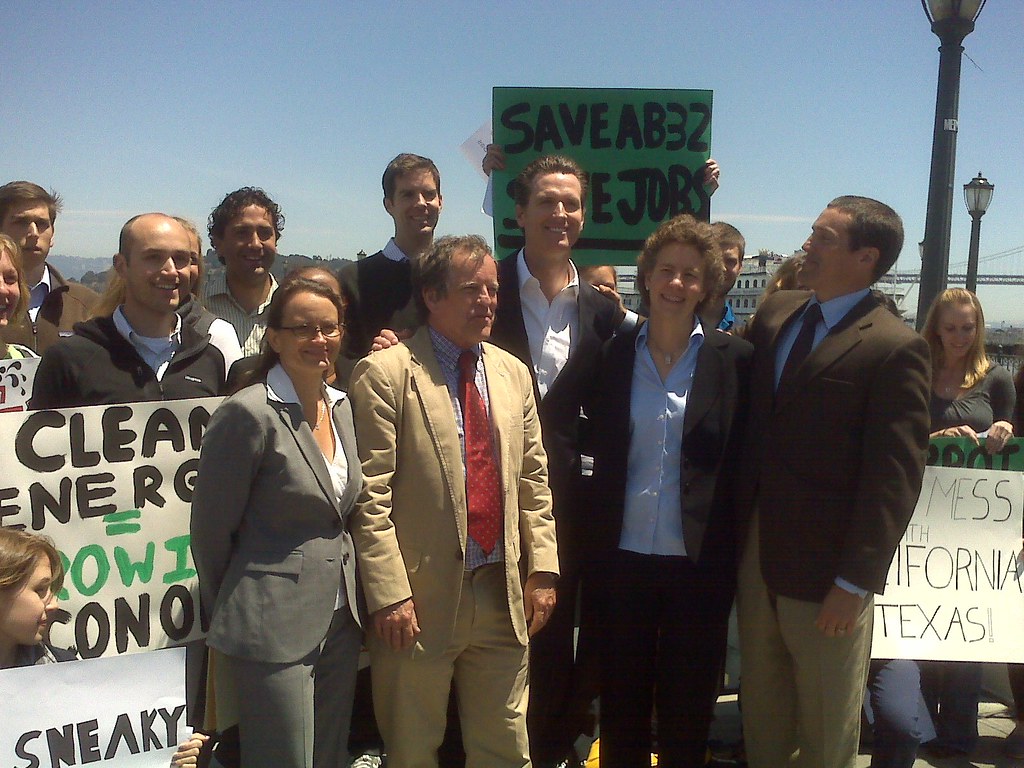Yesterday’s Democratic Senate caucus meeting – combined with Majority Leader Reid’s push on this issue, combined with President Obama’s leadership, combined with a clear demand by the public for action – has given comprehensive clean energy and climate legislation a major boost as we head towards the 4th of July recess. Clearly, at this point, there’s a better path to 60 votes in the U.S. Senate for comprehensive clean energy and climate legislation than ever before. We are that close to making history, let’s make sure we seize this moment!
With all that in mind, a recent national survey by Al Quinlan of Greenburg Quinlan Rosner Research has potentially powerful implications for the 2010 elections, providing yet more evidence that climate legislation – despite a fallacious “mainstream media” narrative arguing otherwise – is actually good politics. The key findings are threefold (note: the document talks about strategy for the Democratic Party, but could apply to Republicans as well):
- Small businesses “are among America’s most popular entities,” with an eye-popping 44:1 favorable to unfavorable ratio (“the highest we have ever seen in our polling on any topic”)
- Generating support from small business owners, for either political party, is a key to success in the upcoming mid-term elections.
- Small business owners strongly agree “that a move to clean energy will help restart the economy and lead to job creation by small businesses.” In fact, according to Greenburg Quinlan, “One of the most surprising findings of the survey is that despite the fact that nearly two thirds of business owners believe it would increase costs for their businesses, a majority still want to move forward on clean energy and climate policy.”
As if that’s not evidence enough that there’s broad support out there for comprehensive, clean energy and climate legislation, how about this Benenson Survey Group survey, conducted in late May/early June 2010? The key findings of this poll are:
- 65% of “likely 2010 voters” believe that “the federal government should invest much more than it currently invests [or] somewhat more than it currently invests .”
- 63% of “likely 2010 voters” support an energy bill that would “limit pollution, invest in domestic energy sources and encourage companies to use and develop clean energy…in part by charging energy companies for carbon pollution in electricity or fuels like gas.”
- Among “undecided voters,” “62% support the bill and just 21% oppose.”
There is also strong evidence from this polling that voters – including independent voters by a 2.5:1 margin – are strongly inclined, by around a 2:1 margin, to be “more likely to re-elect” their Senator if he or she voted for a strong, comprehensive, clean energy and climate bill.
In sum, solid majorities of small businesspeople and the public at large both support comprehensive, clean energy and climate legislation. Which is why, once again – as we pointed out yesterday – the “mainstream media” narrative, that voting for limits on carbon pollution is bad politics, is just dead wrong. To the contrary, victory this November could go to the candidates – and the party – that seizes this issue and makes it their own. Ideally, it would be great to see both Republicans and Democrats fighting to be the “greenest” candidate, and not just in terms of how much money they raise.
UPDATE: Add another poll to the list, this one by WSJ-NBC indicating that “Respondents favored comprehensive energy and carbon pollution reduction legislation by 63 percent to 31 percent – a two to one margin.”

 As if the oil companies from Texas – and their allies in the corridors of power – hadn’t done enough harm to our country already (for more, see the late, great Gulf of Mexico), now they are at it once again. This time, it’s Valero and Tesoro, pouring money into a campaign this election season to undo California’s landmark, clean energy and climate law, AB 32. On Tuesday, the oil companies’ proposition
As if the oil companies from Texas – and their allies in the corridors of power – hadn’t done enough harm to our country already (for more, see the late, great Gulf of Mexico), now they are at it once again. This time, it’s Valero and Tesoro, pouring money into a campaign this election season to undo California’s landmark, clean energy and climate law, AB 32. On Tuesday, the oil companies’ proposition